Andreas Mardt
Deeptime: a Python library for machine learning dynamical models from time series data
Oct 28, 2021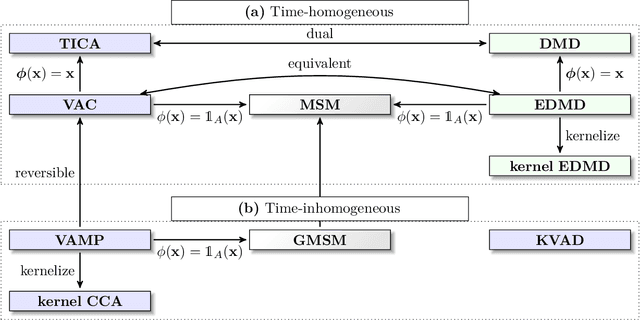

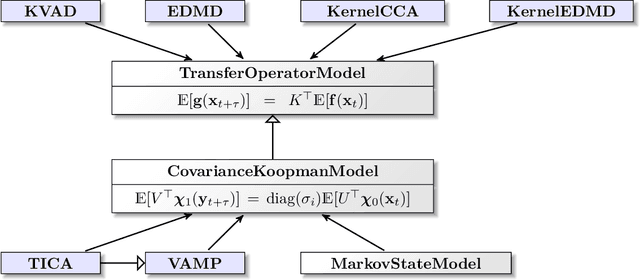
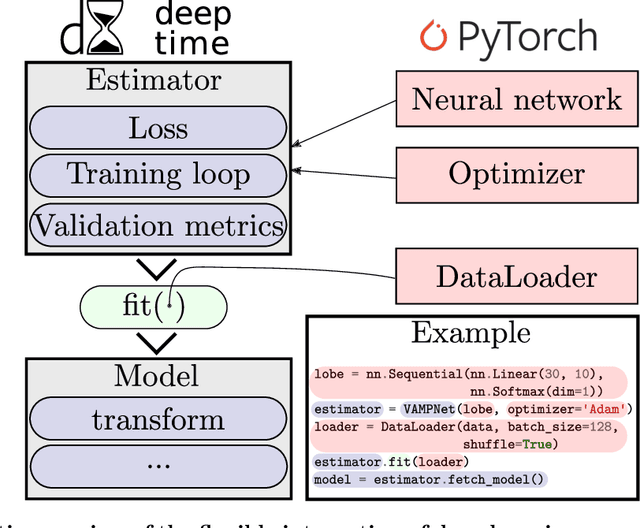
Abstract:Generation and analysis of time-series data is relevant to many quantitative fields ranging from economics to fluid mechanics. In the physical sciences, structures such as metastable and coherent sets, slow relaxation processes, collective variables dominant transition pathways or manifolds and channels of probability flow can be of great importance for understanding and characterizing the kinetic, thermodynamic and mechanistic properties of the system. Deeptime is a general purpose Python library offering various tools to estimate dynamical models based on time-series data including conventional linear learning methods, such as Markov state models (MSMs), Hidden Markov Models and Koopman models, as well as kernel and deep learning approaches such as VAMPnets and deep MSMs. The library is largely compatible with scikit-learn, having a range of Estimator classes for these different models, but in contrast to scikit-learn also provides deep Model classes, e.g. in the case of an MSM, which provide a multitude of analysis methods to compute interesting thermodynamic, kinetic and dynamical quantities, such as free energies, relaxation times and transition paths. The library is designed for ease of use but also easily maintainable and extensible code. In this paper we introduce the main features and structure of the deeptime software.
Deep Generative Markov State Models
May 19, 2018

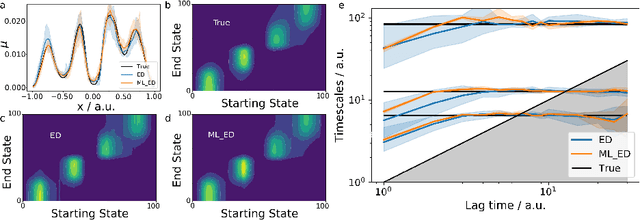

Abstract:We propose a deep generative Markov State Model (DeepGenMSM) learning framework for inference of metastable dynamical systems and prediction of trajectories. After unsupervised training on time series data, the model contains (i) a probabilistic encoder that maps from high-dimensional configuration space to a small-sized vector indicating the membership to metastable (long-lived) states, (ii) a Markov chain that governs the transitions between metastable states and facilitates analysis of the long-time dynamics, and (iii) a generative part that samples the conditional distribution of configurations in the next time step. The model can be operated in a recursive fashion to generate trajectories to predict the system evolution from a defined starting state and propose new configurations. The DeepGenMSM is demonstrated to provide accurate estimates of the long-time kinetics and generate valid distributions for molecular dynamics (MD) benchmark systems. Remarkably, we show that DeepGenMSMs are able to make long time-steps in molecular configuration space and generate physically realistic structures in regions that were not seen in training data.
VAMPnets: Deep learning of molecular kinetics
Dec 20, 2017
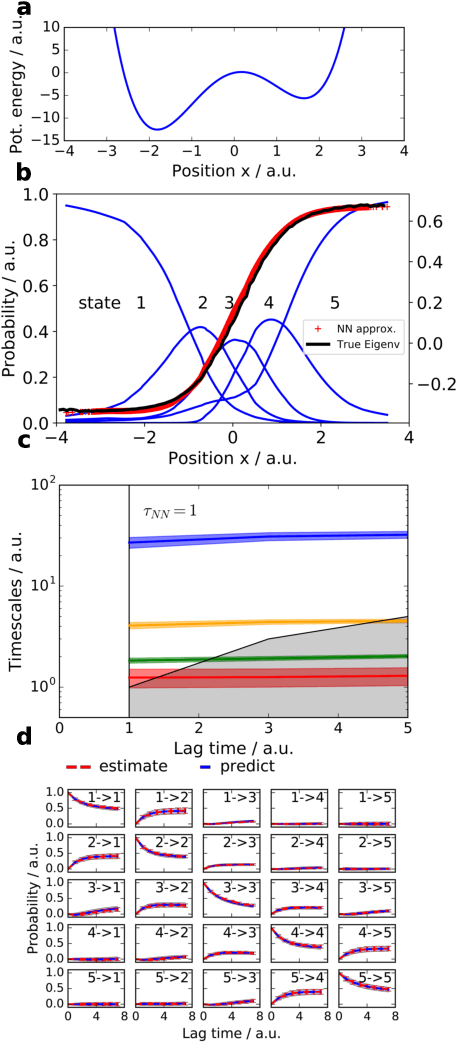


Abstract:There is an increasing demand for computing the relevant structures, equilibria and long-timescale kinetics of biomolecular processes, such as protein-drug binding, from high-throughput molecular dynamics simulations. Current methods employ transformation of simulated coordinates into structural features, dimension reduction, clustering the dimension-reduced data, and estimation of a Markov state model or related model of the interconversion rates between molecular structures. This handcrafted approach demands a substantial amount of modeling expertise, as poor decisions at any step will lead to large modeling errors. Here we employ the variational approach for Markov processes (VAMP) to develop a deep learning framework for molecular kinetics using neural networks, dubbed VAMPnets. A VAMPnet encodes the entire mapping from molecular coordinates to Markov states, thus combining the whole data processing pipeline in a single end-to-end framework. Our method performs equally or better than state-of-the art Markov modeling methods and provides easily interpretable few-state kinetic models.
 Add to Chrome
Add to Chrome Add to Firefox
Add to Firefox Add to Edge
Add to Edge